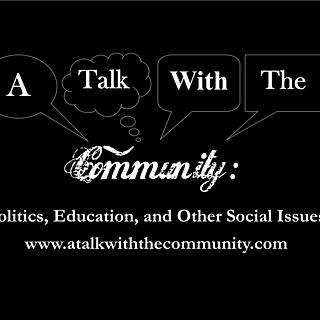America’s Education Status: Common Core State Standards Initiative
- Quintessa Hathaway Hervey
- Dec 27, 2013
- 4 min read
“If a nation expects to be ignorant and free, in a state of civilization, it expects what never was and never will be.” –Thomas Jefferson, 3rd President of the United States of America
The 10th Amendment of the United States Constitution leaves educational matters to be administered by the respective states. For that reason, there are:
13,809± Public School Districts
98,817± Public Schools
33,366± Private Schools
6,742± Post-Secondary Institutions
These statistics have and are creating intraspecific and interspecific competition among the states. The lack of uniformity festered into the educational quandary that America experiences today.
Furthermore, America had become complacent over the past thirty years with its education quality. While other industrialized nations were investing in education, the United States has been having bipolar disorder-like episodes on which direction it should go. Brown v. the Board of Education in Topeka, Kansas and the Civil Rights Act of 1964 ushered in other powerful educational laws that came to be in the 1960s and 1970s.
A perfect example was the Bilingual Education Act of 1968, school desegregation through busing, affirmative action to aid women and minorities. Also, early educational reforms such as: an emphasis on vocational-technical education, the authorization of competency tests, school choice decision, salary adjustments, the passage of the Education of Handicapped Children Act, and the creation of the U.S. Department of Education; were a part of the equation for that era.
The establishment of charter schools occurred in the 1980s. The 1980s also brought about an increase in graduation requirements, the voucher program, and increasing requirements for teacher preparation programs.
There was an inclined interest in prekindergarten education in the 1990s which sought to educate four year olds that had a parent erollment option. The 1990s had an uptick in school violence. This prompted a renewed focus on school safety and security. The 2000s forced the nation to accept new legislation that gave schools a grade that was connected to funding, No Child Left Behind. It raised the bar for teachers, student achievement, graduation requirements, and grade level expectations. Previous pieces of legislation were pinprick in addressing the overall issue of American education.
Currently, there are a new set of educational expectations that seek to raise the bar on curriculum and instruction. The founding of Core Knowledge Schools was the initial nod to the Common Core State Standards Initiative. These standards moil to provide a consistent, clear understanding of student learning expectations ; as well as, reflecting the knowledge and skills mandatory for college and careers readiness.
America has been lagging behind the world in the areas of math, science, literacy. Social studies has historically been neglected as an integral part of the academic sphere. It is not even a tested subject in most states. Future employers are not going to say you must be from Maryland or Mississippi or Virginia. They are going to say, “Are you an American?”
America is losing its global posture on education. It is to the point of paralysis. National educational standards are one of many steps that must be taken to confront the educational crisis. The nation is ill-prepared for a highly technological and innovative world that is demanded in the 21st century and beyond. Many students do not fully grapple or internalize the concept of “global citizenship.”
According to the 2012 Program for International Student Assessment (PISA), America is ranked 25th in mathematics, 27th in science, 24th in reading, and 36th in overall performance. Furthermore, in the country there are report cards on each state; within states on districts; and within districts there are school report cards. Educational deficiencies are an issue of national security and an economic catastrophe waiting to explode.
America needs to be rattled to its conscience about its educational program. It is time for legislators to stop objecting the Common Core State Standards Initiative. Many of the strands and strategies are College Board based. Educators that are National Board Certified Teachers (NBCT) have been applying them in the classroom for many years. It is a statistical fact that students that are taught by a National Board Certified Teacher and take Advanced Placement tests have a higher likelihood of passing and/or being proficient on state standardized test.
The new curriculum promotes critical and systematic thinking, conceptualization, makes connections, and encourages lifelong learning. All of these combined are needed for America to take back the reins of being a global force for educational good.
Educators must look at their profession as an investment in the future and recognize that they are nation builders. Teachers must seek from the students’ integrity and hard work in order to compete at the highest level. Teacher-leaders and administrators should be systematic, transformational, ethical, and trendsetters of the profession. Educators have to expect from the students and themselves a commitment to forward thinking, task completion, and meeting and exceeding the standards of the Common Core State Standards Initiative. This has to be engrained in each and every school’s mission. Building-level and district-level administrators must inspire and motivate the students and stakeholders to do what is necessary for academic success. This is to ensure that the nation may look back years from now and see the returns of its work.
“Education in the key to unlock the golden door of freedom.” –George Washington Carver, American botanist, educator, and scientist





























Comments